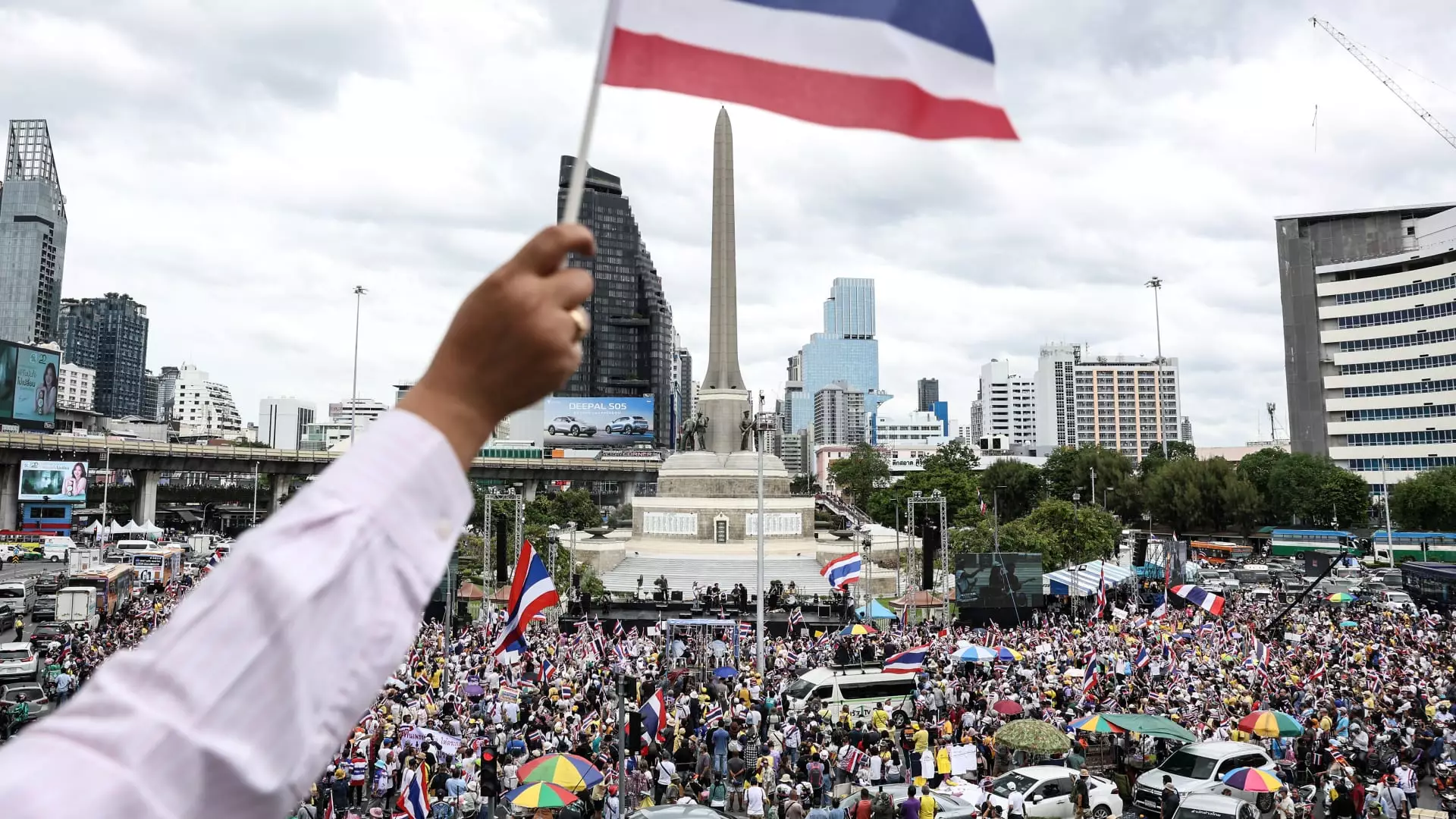The massive protest gathering in Bangkok, demanding Prime Minister Paetongtarn Shinawatra’s resignation, reveals more than just public discontent—it exposes the precarious balancing act she must maintain amid deep-rooted nationalist fervor, fragile political alliances, and regional tensions. Far from being a mere ripple, this demonstration, led by the nationalist United Force of the Land coalition, is emblematic of the enduring resistance to the Shinawatra political legacy, which has continuously polarized Thailand for over two decades. The symbolism of the Victory Monument as the protest site isn’t lost on observers, reflecting a nation grappling with conflicting identities—proud nationalism clashing with political pragmatism.
Legacy Politics and the Weight of History
The Shinawatra family has been both a transformative and divisive force in Thai politics, and Paetongtarn’s emergence underscores the difficulty of distancing herself from her predecessors’ baggage. Past protests against Shinawatra-backed governments didn’t topple regimes overnight, but they set a foundation for judicial cracks and vicious military coups. This historical undercurrent suggests that the current unrest is less about immediate policy disputes and more a reanimation of long-simmering grievances about governance, military influence, and national sovereignty.
The leaked phone call with Cambodia’s Hun Sen, which ignited a political storm, reflects the risky diplomacy or political missteps that often characterize complex regional politics in Southeast Asia. Criticism of a military commander—an untouchable pillar of Thai power—was a miscalculation that played directly into nationalist anxieties and provoked powerful backlash within military and political establishments.
Fragility of Governance Under Siege
Paetongtarn’s challenge is stark: govern effectively while commanding a fragile coalition that barely holds majority control after the recent withdrawal of the Bhumjaithai Party. This party’s exit, fueled by fears of compromised sovereignty following the leaked call, underscores how fragile Thai political coalitions are—held together as much by convenience as by shared vision. The specter of a no-confidence vote looms large, threatening to bring down a government that has yet to prove it can revitalize an economy battered by persistent crises and geopolitical uncertainties.
Her decision not to retaliate against protesters, advocating peaceful demonstrations, is a pragmatic move, reflecting a modern leadership style that acknowledges democratic dissent rather than suppressing it. However, this stance may alienate entrenched conservative and nationalist factions that demand a show of strength.
Judicial and Political Weaponization
The involvement of the Constitutional Court and national anti-graft bodies reveals an alarming trend in Thai politics where legal institutions are often wielded as instruments for political vendettas. Paetongtarn’s potential removal through judicial processes would deepen the cycle of instability, potentially eroding public trust and empowering military or extra-parliamentary actors who have historically stepped into governance voids.
Moreover, Hun Sen’s unprecedented public attack against her government, despite historic alliances, adds an international dimension that exacerbates domestic political tensions. This rare intervention by a foreign leader reflects how intertwined Southeast Asia’s political landscapes are and how personal rivalries can spark broader diplomatic crises.
Balancing Nationalism and Pragmatism
Thailand’s political instability today is less about ideology and more about navigating a complex interplay of nationalism, military power, and regional diplomacy. Paetongtarn’s predicament reflects a larger question facing many emerging democracies: how to reconcile popular demands for national pride and sovereignty with the pragmatic imperatives of governance and international cooperation. Her leadership test will be whether she can harness moderate liberal values—promoting rule of law, peaceful dissent, and economic recovery—while bridging deep societal divisions so easily exploited by nationalist narratives.
In this light, the protest is not solely a challenge to one woman or one government; it is a litmus test of Thailand’s democratic resilience and the evolving role of politics in a deeply divided society.

Leave a Reply